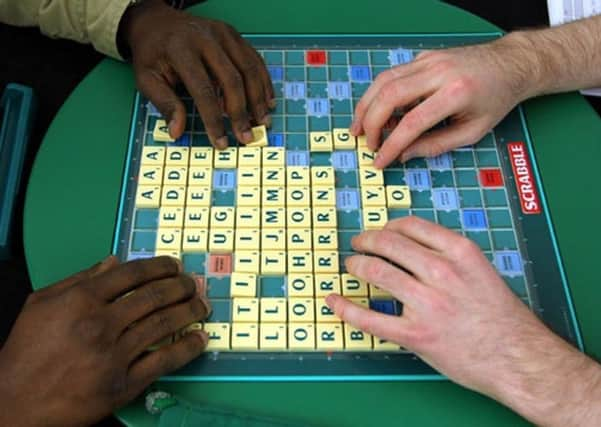How 70-year-old game Scrabble went from Depression-era distraction to staple of modern leisure


The archetypal ‘family board game’, Scrabble already has a legacy to rival that of a small European nation. At least 150 million sets have been produced in more than 120 countries, along with a list of some 276,000 ‘legal’ words. More than half of UK homes have Scrabble on their shelves, while roughly 30,000 games are started every hour, apparently.
It might be surprising that so self-evidently geeky a game has inspired such a devoted following, but perhaps the secret to Scrabble’s success lies in accessibility. The aim is simple - use letters to make words and score points - and it epitomises that winning combination: straightforward to learn, complex to master. So, as Scrabble has turned 70, here’s a look at the game’s meteoric rise...
Advertisement
Hide AdAdvertisement
Hide AdIn the early 1930s, Alfred Mosher Butts was an underemployed New York architect, struggling beneath the weight of the Great Depression. After an equally unsuccessful stint as a painter, Butts decided to take two popular pastimes of the day - crosswords and anagrams - and combine them into a single game. He determined the frequency of different letters by analysing hundreds of copies of The New York Times, The New York Herald Tribune, and The Saturday Evening Post.
His resulting creation, Lexiko, met with rejected patents and slammed doors, while a regrettable rebrand as Criss-Cross Words fared little better. Just as Butts began to lose hope, a lifeline arrived in the shape of James Brunot, an entrepreneur and avowed game-player, who renamed the project Scrabble and pushed it into commercial production.
The game was picked up by Macy’s department store, and sets were soon flying off the shelves of the very same companies that had previously rejected it. Scrabble spent the subsequent decades smoothly outselling its competitors with little or no alterations - and Butts lived off the royalties for the rest of his life. As the game’s global reach grew since incorporation in 1948, so too did the potential for international competitions. 1991 saw the first Scrabble World Championship - though the London-based event was nearly cancelled after all the participants assumed someone else would bring the tiles.
The 2016 Scrabble World Champion Brett Smitheram has been a Scrabble Grand Master for more than 20 years, and knows better than anyone how intensely the game can be played. “I would classify it as a ‘mind sport’,” he says. “Certainly, it ceases to be a game - we’re playing it at a much higher level - a lot of aspects of sport do carry over.”
Advertisement
Hide AdAdvertisement
Hide AdThe Scrabble community guard the game with zealous enthusiasm. New additions to the lexicon can cause major controversy (this year ‘twerk’ was the primary eyebrow-raiser). It has been played underwater, mid sky dive, and, in a world record attempt, for more than 153 hours straight.
Initially a tool for learning English, Scrabble has now exploded across parts of Africa. The continent boasts the world’s number one team in Nigeria, and in Senegal its most Scrabble-mad nation. Though English remains the lingua franca of international competition, other languages are beginning to gain ground. Legendary Scrabbler and 2018 Champion Nigel Richards recently expanded into French scrabble - learning the entire dictionary in six weeks. Word on the street is that Spanish will be next.
There is one rather crucial respect in which Scrabble has embraced the modern age: the ability to play online. Scrabble can now travel around in a back pocket, shuffle your tiles at will, and pit you against players from five continents. So, at 70 years of age, this word game of word games is doing just fine, and in 2019 devotees can look forward to another programme of tile-tapping Scrabble extravaganzas.